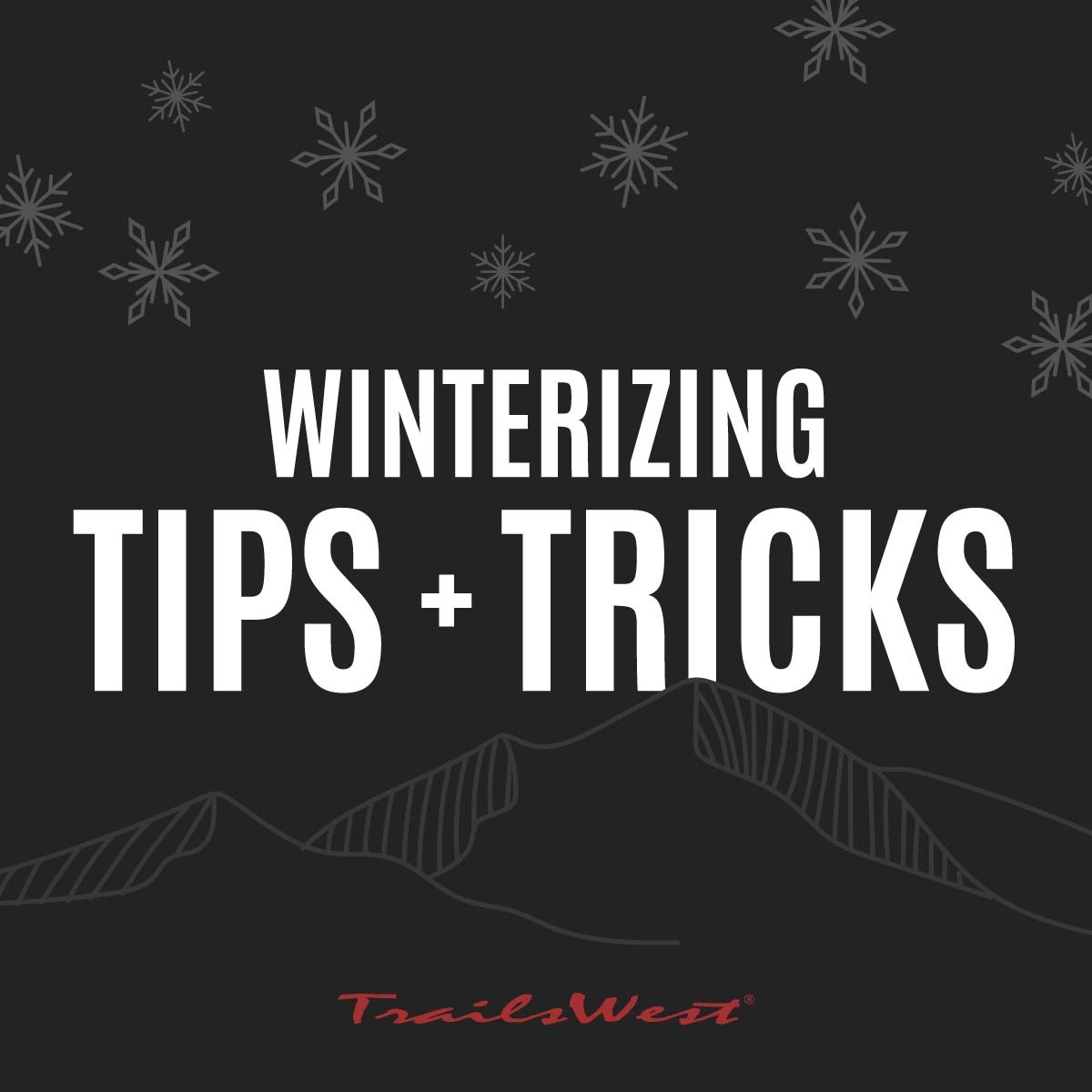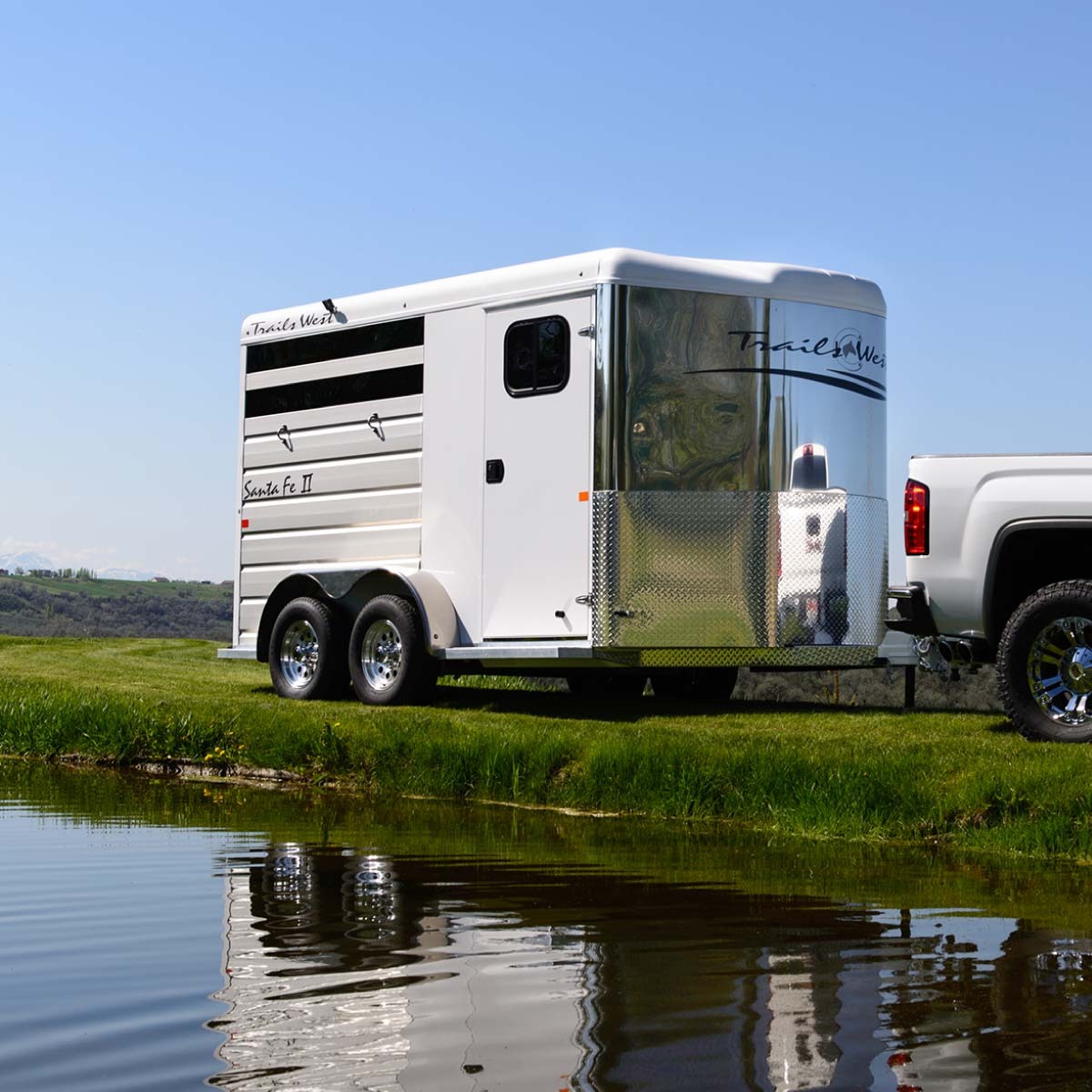Winterizing Your Trailer FAQ

Why is it important to winterize my Trails West Living Quarters?
Winterizing your Trails West Living Quarter is crucial to protect it from freezing temperatures, which can cause damage to the plumbing, appliances, and infrastructure. Proper winterization ensures your trailer is ready to hit the road again when spring arrives.
When should I start the winterization process?
It’s best to start the winterization process before temperatures drop below freezing consistently. Ideally, begin in late fall to prevent any potential damage caused by cold weather.
What are the key steps to winterize?
The essential steps include draining all water systems, adding antifreeze to prevent freezing, protecting exposed hoses, pipes and batteries, and covering or storing your trailer in a secure location. We’ll delve further into this.
How do I drain the water systems in my trailer?
To drain the water systems, start by turning off the water heater and then opening all faucets and low-point drains. It is imperative that the trailer is level while draining the water systems, due to low point drains being the lowest part of the system. Ensure all water tanks are emptied as well. This process removes any remaining water that could freeze and damage your plumbing.
Can I use regular antifreeze for my trailer’s plumbing?
No, you should use RV or marine-specific antifreeze. Regular antifreeze can be toxic, whereas RV antifreeze is safe for potable water systems. Pour it into all water lines, traps, and tanks to protect against freezing.
How can I protect exposed hoses and pipes from freezing?
Insulate any exposed hoses and pipes with foam insulation or heating tape. This added layer of protection helps prevent freezing and potential damage.
Do I need to remove the battery during winterization?
Yes, it’s a good idea to remove the battery and store it in a cool, dry place. You can also use a battery maintainer to keep it charged throughout the winter.
Should I cover my Trailer during the winter months?
Yes, covering your trailer helps protect it from the elements, especially if you’re storing it outdoors. Use a breathable, weatherproof cover designed for RVs or trailers.
Are there any specific tire maintenance tips for winter storage?
Make sure your trailer’s tires are properly inflated before storing it for the winter. If possible, park on wooden blocks to prevent tires from coming into direct contact with cold ground, which can cause damage.
Is it important to clean my horse trailer before winterizing?
Yes, it’s crucial to clean your horse trailer before winterizing it. Cleaning not only helps maintain the trailer’s appearance but also prevents issues like rust and corrosion during the winter months.
What steps should I follow to clean my horse trailer effectively?
To clean your horse trailer before winterizing, follow these steps:
– Remove all bedding and manure from the trailer.
– Sweep and vacuum the interior to remove dust and debris.
– Wash the interior with a horse-safe, mild detergent and rinse thoroughly.
– Scrub any stubborn stains or areas of heavy dirt.
– Clean all windows and mirrors for clear visibility.
– Don’t forget to clean the tack room, if your trailer has one.
– After cleaning, ensure everything is completely dry to prevent mold and mildew growth.
Cleaning your horse trailer not only helps it look its best but also ensures a clean and safe environment for your horses during transport.





